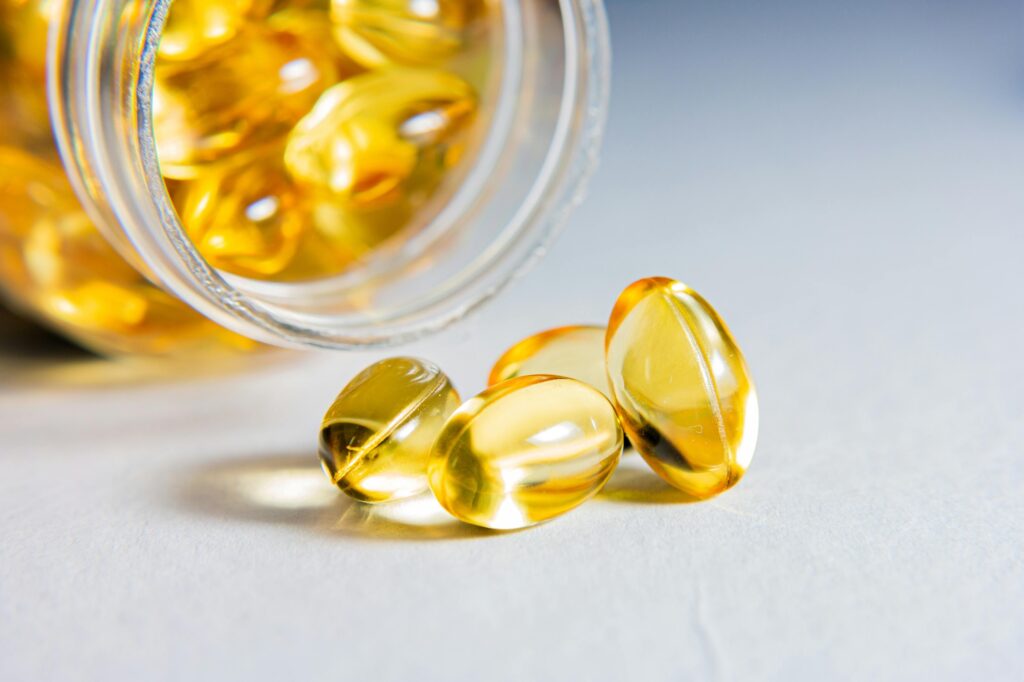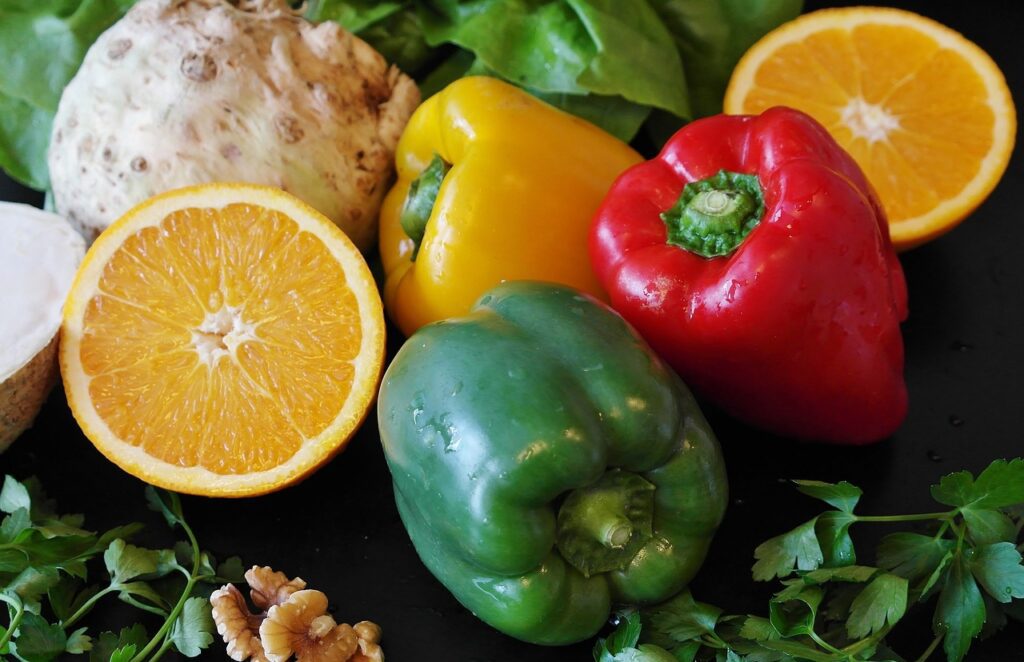Ensuring you have the right vitamins in your diet can help prevent infections, maintain moisture, and support a healthy balance of bacteria. By incorporating the best vitamins for vaginal health into your diet, you can support your intimate health and overall well-being.
Which Vitamins Should Women Look For?
Your body needs a variety of vitamins to stay healthy. If you’re wondering what vitamins are good for vaginal health, here’s a list of key vitamins important for women’s health and foods you can get them from.
1. Vitamin A
Vitamin A is essential for maintaining healthy mucous membranes, which are crucial for vaginal health. This vitamin helps prevent infections by supporting the immune system and ensuring that the vaginal lining stays strong and healthy.
Tip: Eat foods rich in Vitamin A like carrots, sweet potatoes, spinach, and kale.
2. Vitamin C
Known for its immune-boosting properties, Vitamin C is also one of the most important vitamins for vaginal health. Research has found that Vitamin C both prevents and treats infections by enhancing various immune cell functions. This vitamin helps to protect against infections and supports the overall health of the vaginal lining.
Tip: You can find Vitamin C in citrus fruits, strawberries, bell peppers, and broccoli.
3. Vitamin E
Another one of the most important vitamins for vaginal health is Vitamin E. Vitamin E is renowned for its ability to enhance skin health, and it does the same for the vaginal tissues. It helps to maintain moisture and prevents dryness, which can be uncomfortable and lead to other issues.
Tip: Nuts, seeds, avocados, and leafy greens are excellent sources of Vitamin E.
4. Vitamin B Complex
The B vitamins are crucial for overall health and energy production. They help maintain the health of vaginal tissues and support a healthy balance of bacteria.
Tip: Incorporate whole grains, eggs, nuts, and seeds to your diet, as they are good sources of B vitamins.
5. Vitamin D
Another one of the most important vitamins for vaginal health is Vitamin D. It plays a critical role in immune function and it is crucial for vaginal health due to its role in supporting the immune system and reducing the risk of infections. Vitamin D has shown to reduce the risk of bacterial vaginosis. According to Journal of Women’s Health, higher levels of Vitamin D were associated with a reduced incidence of bacterial vaginosis.
Tip: Try to get some sun exposure every day, but use SPF+ protection and avoid overexposure to prevent skin damage.
How to Get Vitamin D?
1. Sunlight Exposure
One of the most natural ways to get Vitamin D is through sunlight. Spending about 10-30 minutes in the sun several times a week can help your body produce sufficient Vitamin D. However, the amount of sun exposure needed can vary based on skin type, location, and the time of year.
2. Dietary Sources
Certain foods are rich in Vitamin D and can help you maintain optimal levels. Fatty fish such as salmon, mackerel, and tuna are excellent sources. Other foods include fortified dairy products like milk and yogurt, fortified plant-based milk alternatives, and egg yolks. Incorporating these into your diet can help boost your Vitamin D intake.
3. Supplements

If you have limited sun exposure or dietary restrictions that make it hard to get enough Vitamin D from food, supplements can be a helpful option. Vitamin D supplements come in various forms, including D2 (ergocalciferol) and D3 (cholecalciferol), with D3 being more effective at raising blood levels of the vitamin.
It has proven that Vitamin D3 vaginal suppositories could improve dryness and cell proliferation of the vaginal mucosa in postmenopausal women, highlighting its importance for vaginal health.
Incorporating Vitamins into Your Diet
Remember, the best way to get vitamins is through food. Eating a balanced diet rich in these vitamins has proven to significantly improve vaginal health.
Top foods for vaginal health include probiotic-rich yogurt, kefir, and leafy greens, which help maintain a healthy bacterial balance. Omega-3 fatty acids found in fish, flaxseeds, and chia seeds reduce inflammation and support overall health.
Also staying hydrated and drinking enough water daily is crucial for overall health, including vaginal health.
Bottom Line
To maintain optimal vaginal health, ensure you stay hydrated, eat a balanced diet rich in fruits, vegetables, and lean proteins. The best vitamins for vaginal health to look for in your diet are Vitamin A, Vitamin C, Vitamin E, Vitamin D and the Vitamin B complex.
By incorporating these essential vitamins into your diet, you can support your vaginal health and overall well-being. However, before starting any new supplement regimen, consult with a healthcare provider.



